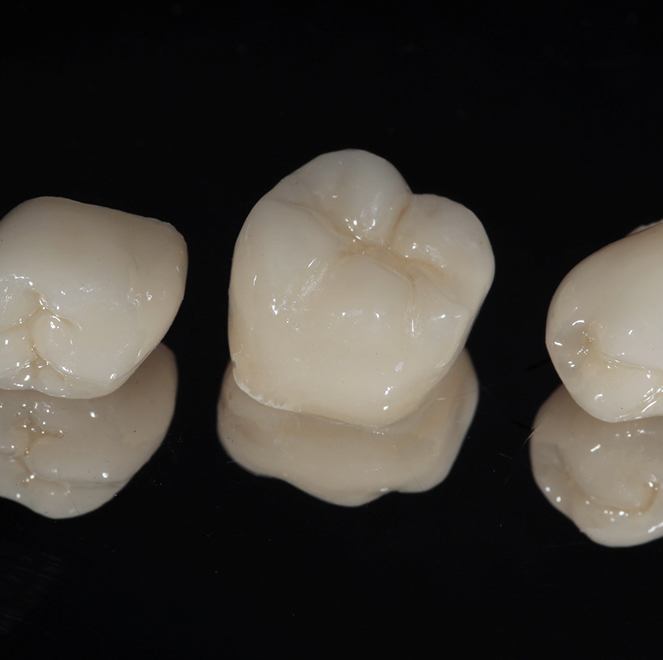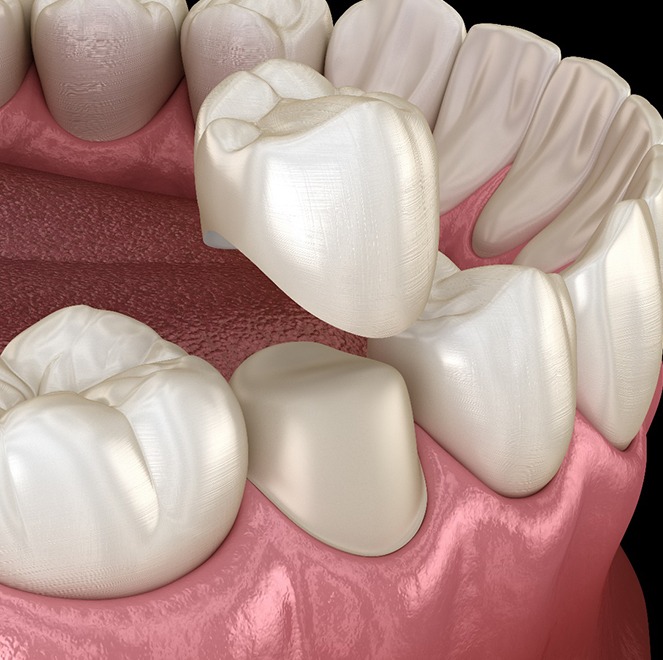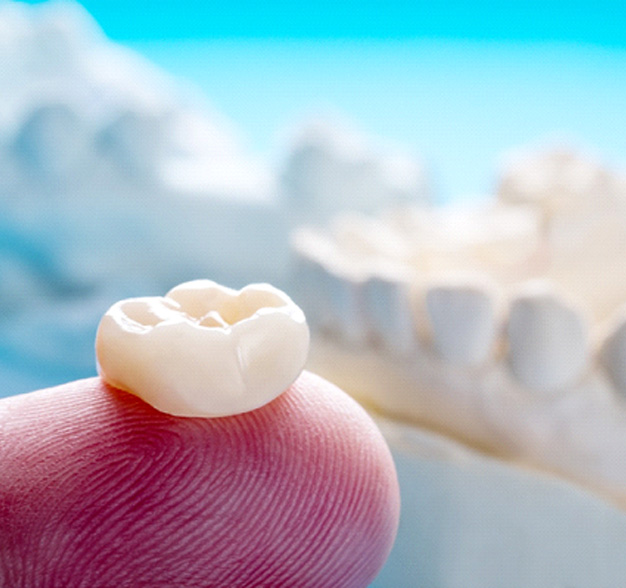Why Choose Khoi Dental Group - Formerly Carlson Dental Group for Dental Crowns?
- Long-Lasting Materials
- Digital Impressions for Restorations That Fit Perfectly
- Three Experienced, Helpful Dentists
Receiving a dental crown is one of the most common dental treatments that you might undergo. Every year, millions of patients with weakened, broken, or misshapen teeth receive crowns so that they continue to chew, speak, and smile normally, giving them a chance to enjoy a full life once again. Here at Khoi Dental Group - Formerly Carlson Dental Group, you don’t have to worry about choosing between a durable, reliable crown and a beautiful, natural-looking one; Drs. Carlson and Le can provide you with restorations that blend right in with the rest of your smile while easily standing up to the normal wear and tear that your natural teeth have to endure. Do you think you need a dental crown in Jacksonville? Contact our office today.



Shaped like a tooth, a dental crown is essentially a “cap” for your smile. It is designed to be permanently attached to a tooth, covering it completely. Crowns can be made from many different materials, including gold and metal alloys. However, all-ceramic or all-porcelain crowns have become very popular in recent years since they can be customized in such a way that they match your natural teeth perfectly so that most people don’t even realize that you’ve had dental work done.

A dental crown can be placed if:
As you can see, crowns are extremely versatile and can be used in many different situations. Of course, before we can decide that a crown or any other type of restoration is necessary, we’ll need to diagnose your oral health issues and take X-rays of your mouth in order to gain a full understanding of your unique situation. Get in touch with us as soon as you notice visible damage on your tooth or have reason to believe your tooth is decayed or infected.
Teeth do not heal by themselves; once they have been injured, a crown is necessary for you to continue using it safely. It can also protect the exposed tooth from infection or further injury. Other benefits include:

Do you have questions about what you can expect from your dental crown? We have the answers you’re looking for! Below we’ve addressed some of the most common things that our patients have asked about dental crowns in the past. If there’s anything you want to know about dental crowns, check to see if we’ve addressed your concerns here. If not, feel free to reach out to us; we’re always happy to help our patients learn more about their care.
A crown is likely approaching the end of its lifespan if:
If you notice any of these problems, call us immediately. We can examine your crown to determine whether or not it truly needs to be replaced.
A dental crown isn’t made out of enamel, so it can’t technically get cavities. That said, that doesn’t mean the tooth underneath it can’t still suffer from decay. Teeth that support crowns still have roughly the same risk of cavities as regular teeth; as such, oral hygiene is just as important as ever even after your crown has been placed. Keep the area where the crown meets the gum tissue clean so that bacteria don’t slip under the restoration and start causing damage.
If you’re having a dental crown made by a separate dental laboratory, then it can take a few weeks and at least two appointments to get your final restoration. However, thanks to the state-of-the-art CEREC system, our office can make and place your crown in a single day! We simply need to take a digital scan of your teeth, which the CEREC system will use to design and mill a restoration specifically for your smile. The entire appointment can be completed in just a couple of hours, and you’ll be able to get your permanent crown right away without having to wear a temporary one.
Even if your crown is made out of tooth-colored materials, it can’t be whitened the same way your natural teeth can. Enamel is porous, which is what allows bleaching gels to penetrate it and break up stains. Meanwhile, the materials used to make crowns don’t have pores, so they don’t respond to whitening. (At the same time, this also makes them resistant to staining, so they’re less likely to become discolored in the first place.) It’s usually recommended that you have your teeth whitened before a crown is placed so that the final restoration matches your smile.